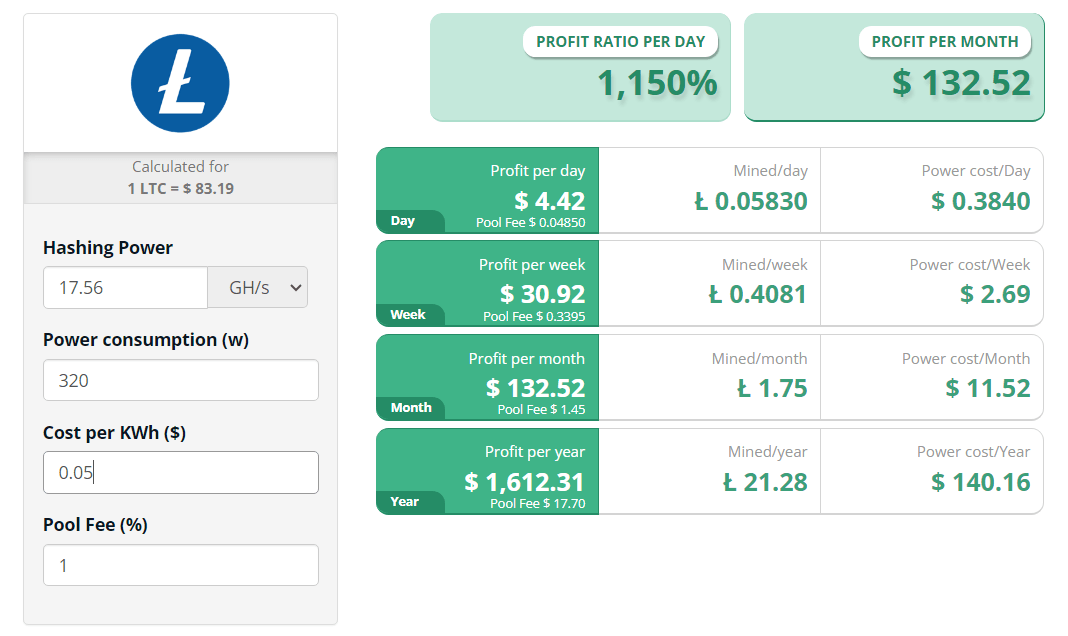Antminer L9 Coming Soon: Will Change Litecoin and Dogecoin Mining?

Antminer L9 is coming, with a more powerful and energy-efficient way for Scrypt mining. This hashing algorithm is key for securing the Litecoin network, while also producing Dogecoin. Scrypt miners will face a price tag above $16K, but a chance for higher profitability in mining LTC and DOGE.
Bitmain is still the main source of mining rigs, and its new models drove the arms race among miners. Proof-of-work blockchains are still a thing, and new rigs offer more energy efficiency with improved performance, to offset environmental concerns.
Antminer L9 to Be Released by the End of May
The new Antminer Scrypt rig was pre-announced to arrive in May, but there is no set date. The new miner is not yet listed on the Bitmain site.
Some vendors, however, have already listed the model for presale, with a price tag starting at $14,700. The new hashing power is not expected to affect Scrypt networks for months, as the first shipments are scheduled for June.
Also read: Litecoin Price Prediction 2024-2030: Will LTC Price Hold $100?
The Antminer L9 will produce up to 17.6 GH/s, competing with the overall growing mining presence for Litecoin.
In the past three years, Litecoin’s mining has gradually grown, and activity is up by 500%. The hashrate is now 1.16 PH/s, breaking to a new range. But this level of mining is negligible compared to Bitcoin’s network.
Also read: How is Litecoin a Winner? LTC Leads As Most Widely-Used Coin for Payments and Simple Transactions
However, for Litecoin miners, the relatively low competition allows for additional block creation and higher rewards. Litecoin is still between two halving cycles and its block reward is still 6.25 coins per block, with additional Dogecoin (DOGE) issued in every new block created.
Is the New Litecoin Miner Profitable?
The big question when investing in a mining rig is whether it would pay for itself through rewards and fees.
The new Antminer L9 can be profitable, given cheap electricity and peak performance. However, the earnings are potentially around $1,000 per year, depending on different electricity prices.

Litecoin and SCRYPT mining is differently profitable and depends on just the creation of new LTC. Other Scrypt-based assets may have different profitabilities.
Are Scrypt-Based Tokens Still Relevant?
Most Scrypt mining assets are relatively older, created soon after the launch of Bitcoin. Litecoin and Dogecoin are still the most significant and prominent ones.
Other mined assets include Syscoin (SYS), MonaCoin (MONA) and ReddCoin (RDD), which survive mostly due to being tied to their online communities. Most Scrypt-based coins have trading volumes close to zero, and some are practically frozen and useless.
Any new Scrypt-based hashing power would thus go to LTC and DOGE production, hardly affecting other networks.
Mining Links to Web3, NFT Items
The old model of mining included the creation of coins, which were then held or sold to cover costs.
In some cases, however, miners found other ways to retain value. The newly minted coins are used as collaterals to support the value of NFT or other types of tokens. Thus, not all LTC and DOGE would be sold.
Some miners offer a share of their rig’s performance, usually in exchange for fees or for buying a specific NFT. Snekkies, one of the NFT projects on Cardano, is tied to a Scrypt miner, who also holds LTC and DOGE collaterals.
LTC is a relatively stable asset, trading at $83.08. DOGE recovered above $0.15, and has also kept within a predictable range. Together, the assets have a loyal community of long-term holders, and are suitable as collaterals for riskier Web3 features.
Litecoin Mining Still Hinges on Large Pools
Litecoin mining is impossible to do solo. Just like Bitcoin’s network, Litecoin mining is dominated by four of the largest pools.
Most LTC is produced by Bitmain’s own Antpool, as well as ViaBTC, F2Pool and the Binance.com pool.
It may be possible that the Antminer L9 would first be available and tested by Antpool, solidifying its leading position. Antpool controls 28.9% of all known hashrate, and discovers on average 16 of every 100 Litecoin blocks.
Cryptopolitan reporting by Hristina Beeva.




 Bitcoin
Bitcoin  Ethereum
Ethereum  Tether
Tether  Dogecoin
Dogecoin  USDC
USDC  Cardano
Cardano  TRON
TRON  Chainlink
Chainlink  Hedera
Hedera  Stellar
Stellar  Bitcoin Cash
Bitcoin Cash  LEO Token
LEO Token  Litecoin
Litecoin  Cronos
Cronos  Ethereum Classic
Ethereum Classic  Monero
Monero  Dai
Dai  OKB
OKB  Algorand
Algorand  Cosmos Hub
Cosmos Hub  Stacks
Stacks  Theta Network
Theta Network  Gate
Gate  Tezos
Tezos  Maker
Maker  KuCoin
KuCoin  Zcash
Zcash  IOTA
IOTA  NEO
NEO  Polygon
Polygon  Synthetix Network
Synthetix Network  Tether Gold
Tether Gold  Dash
Dash  TrueUSD
TrueUSD  Holo
Holo  Zilliqa
Zilliqa  0x Protocol
0x Protocol  Enjin Coin
Enjin Coin  Basic Attention
Basic Attention  Qtum
Qtum  Siacoin
Siacoin  Ravencoin
Ravencoin  Decred
Decred  Bitcoin Gold
Bitcoin Gold  NEM
NEM  DigiByte
DigiByte  Huobi
Huobi  Ontology
Ontology  Nano
Nano  Status
Status  Hive
Hive  Lisk
Lisk  Waves
Waves  Numeraire
Numeraire  Steem
Steem  Pax Dollar
Pax Dollar  BUSD
BUSD  OMG Network
OMG Network  Ren
Ren  Bitcoin Diamond
Bitcoin Diamond